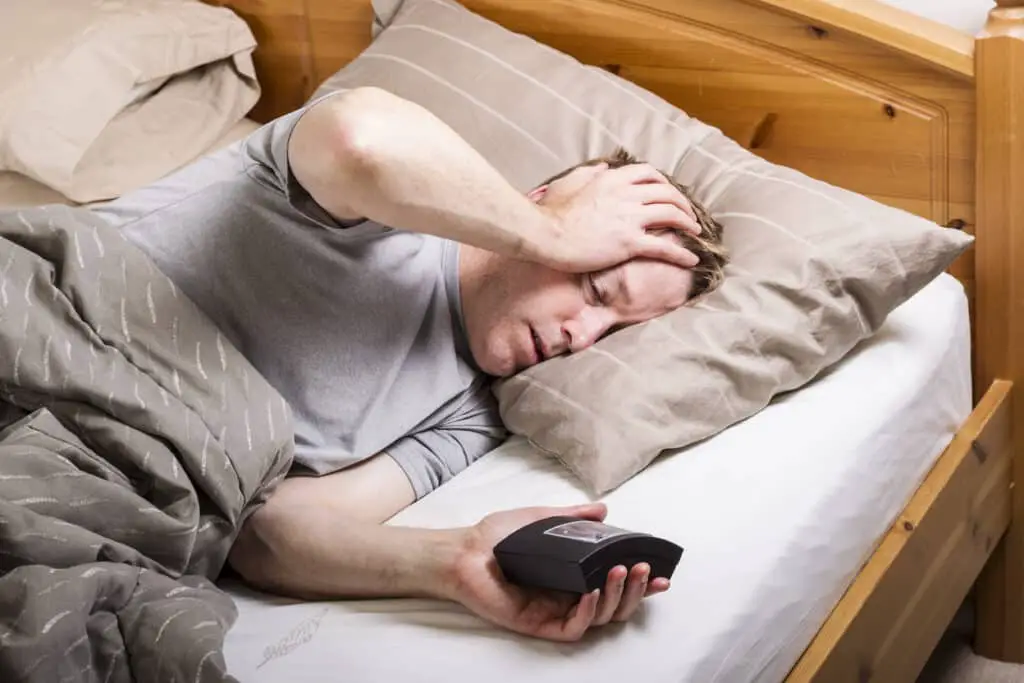Introduction
Sleep deprivation is a pervasive and often underestimated issue in today’s fast-paced world. As our lives become increasingly busy and demanding, many individuals find themselves sacrificing precious hours of rest in favor of work, social activities, or simply trying to keep up with the demands of daily life. While the consequences of sleep deprivation on our cognitive functioning and overall well-being are well-documented, one intriguing and somewhat counterintuitive In this exploration, we will delve into the complex relationship between sleep and weight management, shedding light on how inadequate sleep can potentially impact our waistlines and overall health. While it may seem paradoxical at first, the link between sleep and weight is a multifaceted puzzle that warrants closer examination.
Sleep plays a crucial role in regulating hormones that control appetite and metabolism. When you’re sleep-deprived, your body produces more ghrelin, a hormone that stimulates appetite, while at the same time, it reduces the production of leptin, a hormone that signals fullness. This hormonal imbalance can lead to increased hunger and a greater likelihood of overeating, which in turn can contribute to weight gain over time. Sleep-deprived individuals often crave high-calorie, sugary, and fatty foods. These cravings are thought to be linked to the brain’s reward centers, which become more active when you’re sleep-deprived, making it harder to resist unhealthy food choices.
Sleep deprivation can leave you feeling fatigued and less motivated to engage in physical activity. This sedentary lifestyle can lead to a decrease in calorie expenditure, making it easier to gain weight or hinder weight loss efforts. Irregular sleep patterns or chronic sleep deprivation can disrupt your body’s internal clock, known as the circadian rhythm. This disruption can affect the timing of meals and metabolism, potentially leading to weight gain.

Does less sleep cause you to lose weight?
Translation: You’re more apt to hang on to fat. Researchers found that when dieters cut back on sleep over a 14-day period, the amount of weight they lost from fat dropped by 55%, even though their calories stayed equal. They felt hungrier and less satisfied after meals, and their energy was zapped.
The Basics of Sleep and Weight Regulation
Before delving into the potential impact of sleep on weight loss, it’s essential to understand the fundamental mechanisms at play. Two key hormones, leptin and ghrelin, play crucial roles in regulating appetite and body weight.
Leptin: Often referred to as the “satiety hormone,” leptin is produced by fat cells and sends signals to the brain to reduce appetite when the body has sufficient energy stores. In other words, higher levels of leptin help you feel full and satisfied.
Ghrelin: Ghrelin, on the other hand, is known as the “hunger hormone.” It is primarily produced in the stomach and stimulates appetite. Ghrelin levels tend to rise before meals, signaling the body that it’s time to eat.
The Sleep-Weight Connection
Appetite Regulation: Sleep deprivation can disrupt the balance of leptin and ghrelin in the body. When you don’t get enough sleep, leptin levels drop, leading to decreased feelings of fullness, while ghrelin levels increase, making you feel hungrier. This hormonal imbalance can lead to overeating and, consequently, weight gain.
Cravings and Food Choices: Lack of sleep has been linked to increased cravings for high-calorie, carbohydrate-rich foods. People who are sleep-deprived are more likely to reach for sugary snacks and comfort foods, which can contribute to weight gain over time.
Metabolism: Chronic sleep deprivation may also negatively affect metabolism. Some studies suggest that inadequate sleep can lead to insulin resistance, a condition that can result in weight gain and increase the risk of type 2 diabetes.
Why am I losing weight and not sleeping?
Overactive Thyroid (Hyperthyroidism)
An overactive thyroid can cause a wide range of symptoms in addition to weight loss, including: insomnia.
Stress and Anxiety
Stress and anxiety can significantly impact both sleep quality and weight. When you’re stressed or anxious, your body may release stress hormones like cortisol, which can disrupt your sleep patterns. Poor sleep, in turn, can exacerbate stress and anxiety, creating a vicious cycle.
Additionally, stress and anxiety can affect your appetite. Some individuals may lose their appetite when stressed, leading to unintentional weight loss, while others may turn to comfort eating, leading to weight gain.
Medical Conditions
Hyperthyroidism: An overactive thyroid gland can accelerate your metabolism, leading to weight loss, along with symptoms like insomnia and restlessness.
Gastrointestinal Disorders: Conditions like celiac disease, irritable bowel syndrome (IBS), or gastroesophageal reflux disease (GERD) can disrupt sleep due to discomfort and may also lead to unintended weight loss due to poor nutrient absorption or digestive issues.
Depression: Depression can affect both sleep and appetite. While some individuals with depression may sleep excessively, others may have trouble sleeping and experience appetite changes that result in weight loss.
Medications
Certain medications, including stimulants, antidepressants, and medications that suppress appetite, can lead to weight loss while also affecting sleep patterns. If you’ve recently started a new medication and notice these changes, consult your healthcare provider for guidance.
Poor Eating Habits
Inadequate nutrition and erratic eating patterns can contribute to both weight loss and sleep problems. Skipping meals, consuming excessive caffeine or alcohol, or indulging in late-night snacks can disrupt your sleep cycle and lead to weight loss if your caloric intake is consistently low.
How many hours of sleep to lose weight?
If you want to lose weight, you should make sure that you are getting sufficient sleep in addition to following a healthy diet and exercise program. For most of us, that means, you’ll need 7 hours or more a night.
Hormonal Regulation: Adequate sleep helps maintain the balance of key hormones that influence appetite and metabolism. When you consistently get enough sleep, your body produces sufficient leptin (the hormone that signals fullness) and keeps ghrelin (the hunger hormone) in check. This hormonal balance can reduce overeating and cravings for high-calorie foods.
Restorative Functions: Sleep is a time when the body undergoes crucial restorative processes, including muscle repair and hormone regulation. Insufficient sleep can hinder these processes, potentially leading to a slower metabolism and muscle loss, which can make it more challenging to lose weight.
Energy Levels: A good night’s sleep enhances your energy levels and mental clarity, making it easier to engage in physical activity and make healthy food choices. Inadequate sleep often results in fatigue and sluggishness, which can discourage exercise and encourage poor eating habits.
Emotional Well-Being: Sleep is closely linked to mood and emotional well-being. Lack of sleep can increase stress and anxiety levels, which may lead to emotional eating and weight gain.
Late-Night Snacking: Poor sleep habits can also lead to late-night snacking, which is often associated with consuming excess calories, especially from less healthy food options.
What are the benefits of lack of sleep?
Interestingly, sleep deprivation can have positive effects such as tireless stamina, enhanced creativity, heightened awareness, and a cheerful mood.
Enhanced Alertness and Focus
In certain situations, short-term sleep deprivation can lead to increased alertness and improved focus. The brain’s response to sleep deprivation is often characterized by heightened attention and vigilance as it strives to counteract the effects of fatigue. This can be beneficial in situations where extended wakefulness is necessary, such as during emergency situations or when working on critical tasks with impending deadlines.
Enhanced Creativity
Some studies suggest that a moderate lack of sleep can enhance creativity and problem-solving abilities. Sleep deprivation can lead to more flexible thinking, allowing individuals to approach challenges from new angles and make unconventional connections. However, this benefit is often short-lived, as prolonged sleep deprivation can lead to cognitive decline.
Increased Metabolism
Occasionally, brief periods of sleep deprivation can temporarily increase metabolic activity. When the body is sleep-deprived, it may burn more calories to maintain energy levels. This effect is generally not substantial and should not be considered a weight loss strategy. Moreover, the long-term consequences of chronic sleep deprivation on metabolism are negative, as it can lead to weight gain and other health issues.
Mood Enhancement
Surprisingly, some individuals experience a mood lift during temporary sleep deprivation. This may be due to increased dopamine and serotonin levels in response to the body’s stress from lack of sleep. However, this mood improvement is often followed by a crash, and chronic sleep deprivation can contribute to mood disorders such as depression and anxiety.
Is 10pm to 4am enough sleep?
“There is no such thing as a “fixed or ideal time” to go to bed which will suit all individuals. It is generally advisable to fall asleep between 10 pm to midnight as for most people this is when the circadian rhythm is at a point that favours falling asleep.”
Is 10 PM to 4 AM Enough
Individual Variability: Some individuals naturally require less sleep and can function well on shorter durations. Genetics can play a role in determining your sleep needs.
Sleep Quality: The quality of your sleep is as important as the quantity. Even if you sleep for six hours, if it’s uninterrupted and restorative, it might be sufficient. On the other hand, frequent awakenings or sleep disturbances can affect the overall quality of your sleep.
Age: Sleep needs change throughout the lifespan. Older adults often require slightly less sleep than younger individuals.
Lifestyle and Health: Your overall health and lifestyle can impact your sleep needs. If you have a physically demanding job or are dealing with a health condition, you may need more sleep to recover and function optimally.
Daytime Functioning: The most critical indicator of whether your sleep duration is adequate is how you feel during the day. If you’re alert, focused, and in a good mood, six hours of sleep might be sufficient for you. However, if you feel consistently tired, irritable, or have trouble concentrating, you may need more sleep.
Sleep Debt: Consistently getting less sleep than your body requires can accumulate as sleep debt. Over time, this can lead to health problems and impact your daily functioning.
Will I lose weight faster if I sleep more?
Sleeping 1 Extra Hour Linked to Eating 270 Fewer Daily Calories, Study Shows. The data adds to a growing volume of evidence suggesting sleep plays an important role in weight management. Experts say sleep could be a ‘game changer’ for weight loss efforts.
The Relationship Between Sleep and Weight
Hormonal Regulation: Sleep duration impacts the production of key hormones that regulate appetite and metabolism. Inadequate sleep can disrupt the balance of hormones like leptin (which signals fullness) and ghrelin (which stimulates appetite). When you don’t get enough sleep, leptin levels drop, making you feel less full, while ghrelin levels rise, increasing hunger and cravings for high-calorie foods.
Cravings and Food Choices: Lack of sleep has been linked to an increased desire for high-carbohydrate and sugary foods. Sleep-deprived individuals may be more prone to unhealthy snacking and overeating, which can contribute to weight gain.
Metabolism: Chronic sleep deprivation may lead to insulin resistance, a condition in which the body’s cells become less responsive to insulin, potentially resulting in weight gain and an increased risk of type 2 diabetes.
Energy Expenditure: Adequate sleep supports higher energy levels during the day, making it easier to engage in physical activity and burn calories through exercise. Conversely, sleep deprivation often leads to fatigue and reduced motivation to work out.
What are 7 effects of lack of sleep?
Sleep deficiency is linked to many chronic health problems, including heart disease, kidney disease, high blood pressure, diabetes, stroke, obesity, and depression.
Impaired Cognitive Function
One of the most noticeable effects of sleep deprivation is impaired cognitive function. Lack of sleep can lead to difficulties with concentration, memory, problem-solving, and decision-making. This can impact your performance at work or school and increase the risk of accidents and errors.
Mood Disturbances
Sleep plays a crucial role in regulating mood. Chronic sleep deprivation is associated with mood disturbances such as increased irritability, mood swings, and a higher likelihood of experiencing symptoms of depression and anxiety. These emotional fluctuations can strain relationships and negatively affect your overall quality of life.
Decreased Immune Function
A lack of sleep can weaken your immune system, making you more susceptible to infections and illnesses. Sleep is a critical time when the body repairs and regenerates cells, and it helps the immune system function optimally. Prolonged sleep deprivation can lead to increased vulnerability to common illnesses like colds and flu.
Weight Gain and Obesity
Sleep deprivation can disrupt the balance of hormones that regulate appetite and metabolism. It often leads to increased cravings for high-calorie, carbohydrate-rich foods, and impairs the body’s ability to recognize when it’s full. Over time, this can contribute to weight gain and an increased risk of obesity.
Do thin people sleep better?
Studies show that people who carry extra weight sleep less than people with lower body mass indexes (BMIs).
The Impact of Weight on Sleep
Sleep Apnea: One of the most notable connections between weight and sleep is sleep apnea. Sleep apnea is a sleep disorder characterized by pauses in breathing during sleep. It is more prevalent in individuals who are overweight or obese due to the excess fat deposits around the upper airway that can obstruct breathing. Thin people are generally at a lower risk of developing sleep apnea.
Insomnia: While obesity can be associated with sleep apnea, thin individuals may experience insomnia or other sleep disorders due to different reasons, such as stress, anxiety, or lifestyle factors.
Sleep Quality: Research has shown that individuals with higher body mass indexes (BMIs) may experience poorer sleep quality. This can include difficulty falling asleep, more frequent awakenings during the night, and less time spent in restorative deep sleep. However, these sleep disturbances can occur in individuals of all body sizes.
Physical Comfort: Body weight can affect physical comfort during sleep. For some individuals, being overweight can lead to discomfort or pain that disrupts sleep. Thin individuals may not experience these issues to the same extent.

Conclusion
The question of whether sleep deprivation causes weight loss is a multifaceted one. While it may seem counterintuitive, the cumulative evidence suggests that sleep deprivation is more likely to contribute to weight gain rather than weight loss. The mechanisms at play involve hormonal imbalances that increase appetite, cravings for unhealthy foods, reduced physical activity, disrupted circadian rhythms, impaired insulin sensitivity, elevated stress levels, and other factors that collectively promote weight gain over time.
It is essential to recognize that the relationship between sleep and weight is not a straightforward equation. Short-term sleep deprivation may lead to a temporary drop in weight due to fluid loss and appetite fluctuations, but chronic sleep deficiency can have far-reaching consequences for our overall health and well-being. In the long run, prioritizing sufficient and high-quality sleep is a crucial aspect of maintaining a healthy weight and reducing the risk of obesity-related health issues.
Therefore, as we strive for better health and well-being, understanding the importance of sleep and making efforts to establish healthy sleep patterns should be considered a fundamental part of our overall approach to weight management and long-term health. Adequate sleep not only helps us feel more rested and alert but also plays a pivotal role in achieving and maintaining a healthy body weight.

